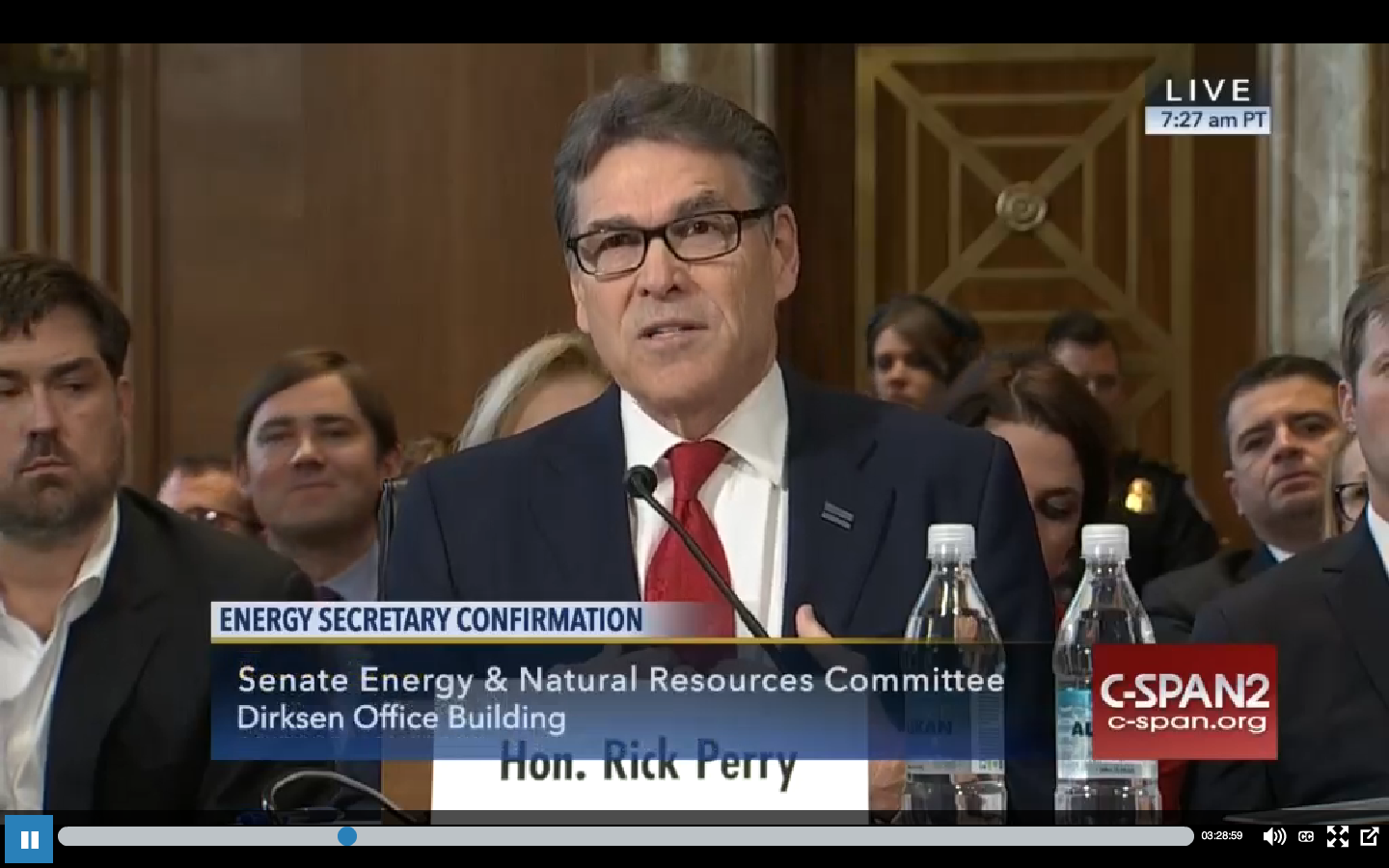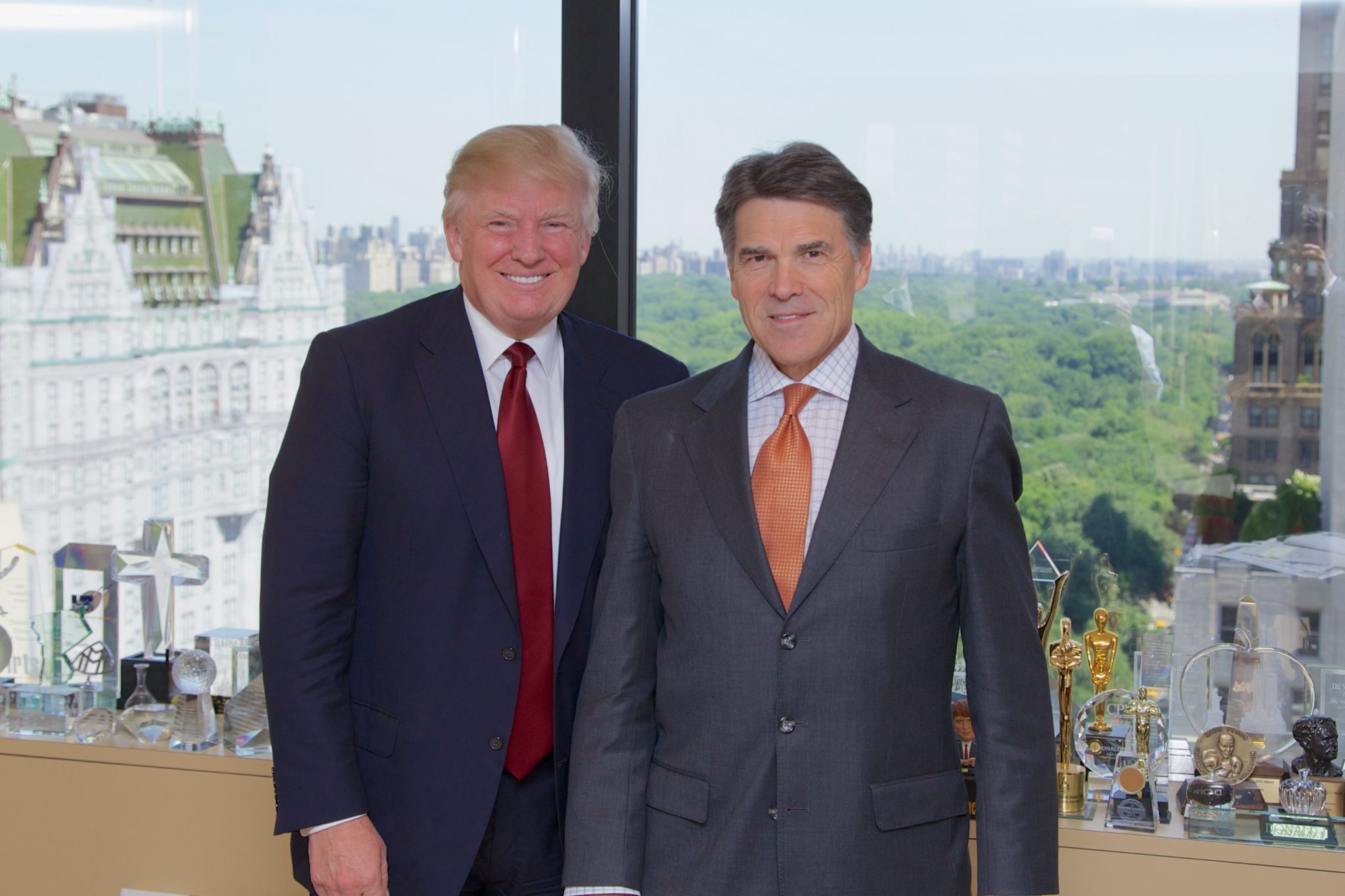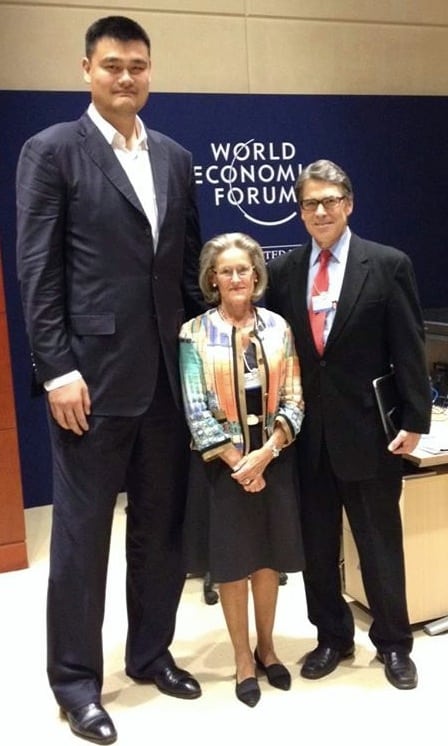
Rick Perry Partially Reverses Stance on Climate Change, Agrees ‘Some of It’ is Man-Made
After more than a decade of questioning climate science, Perry softened his stance at his confirmation hearing on Thursday.

In a departure from his previous statements on climate change, Rick Perry told members of the U.S. Senate Committee on Energy and Natural Resources that “the climate is changing” and that “some of it is caused by man-made activity.”
The position is a drastic pivot from his previous statements on climate change. During his time as governor of Texas, Perry denied that climate change is occurring at all. He has said that “calling carbon dioxide a pollutant is a disservice to the country” and that climate scientists “have manipulated data so that they will have dollars rolling into their projects.” In fact, in his 2010 book Fed Up!, Perry claimed that the planet “is on a cooling trend,” characterized efforts to address climate change as “hysteria” and called climate science “a contrived phony mess.”
However, on Thursday at his confirmation hearing to head the Department of Energy, Perry repeatedly said that global warming is happening and that humans are partially responsible. Those statements put Perry closer to agreement with climate scientists who have long warned that human use of fossil fuels is causing climate change and that cutting carbon emissions is key to staving off its most devastating effects. Still, it is unclear whether Perry’s comments were merely to placate committee members or a result of a wholehearted change in opinion.
The former governor included some caveats in his argument that suggest he hasn’t fully abandoned his climate denier roots. He claimed that “some of [the global warming] is naturally occurring” and emphasized that he supports an “all-of-the-above strategy” toward energy policy, including funding clean coal projects, oil and natural gas development, as well as renewable technologies.
“The question is how we address [climate change] in a thoughtful way that doesn’t compromise economic growth, affects the affordability of energy or American jobs,” he said.
Minnesota Senator Al Franken took issue with that argument, saying it presumes that efforts to address climate change will have a detrimental effect on the economy and result in fewer job opportunities. Economic researchers and policy advisers agree that ramping down carbon emissions doesn’t have to mean an economic slowdown. Jobs in the clean energy sector and energy production from wind and solar can keep economic engines whirring, they say.
At two points, members of the energy committee tried to push Perry to expand on his comments on climate change, but Perry dodged their questions. When Franken asked Perry what percentage of climate change he thinks is a result of human activity, Perry relied on a common talking point used by climate deniers and said he is not a climate scientist.
And when Vermont Senator Bernie Sanders asked him to agree with the vast majority of the scientific community and state that “climate change is a global crisis,” Perry deflected, restating that he believes the climate is changing and that it is in part due to human activity.
“I will respond that having an academic discussion, whether it’s with scientists or with you, is an interesting exercise,” Perry said. “But do I have a record of affecting the climate in this world and the country and the answer is yes. When you lower carbon emissions by 17 percent and sulfur dioxide by 66 percent and [nitrogen oxides] by 58 percent, don’t you think that’s a good thing?”
Those emission reductions, however, were a result of federal environmental regulations that Perry railed against and market changes that led to the growth in renewables. During his governorship, Perry was an enthusiastic cheerleader for fossil fuel industries, at one point helping fast-track permitting for 11 coal plants.
Watch the full hearing, courtesy of CSPAN, above.


